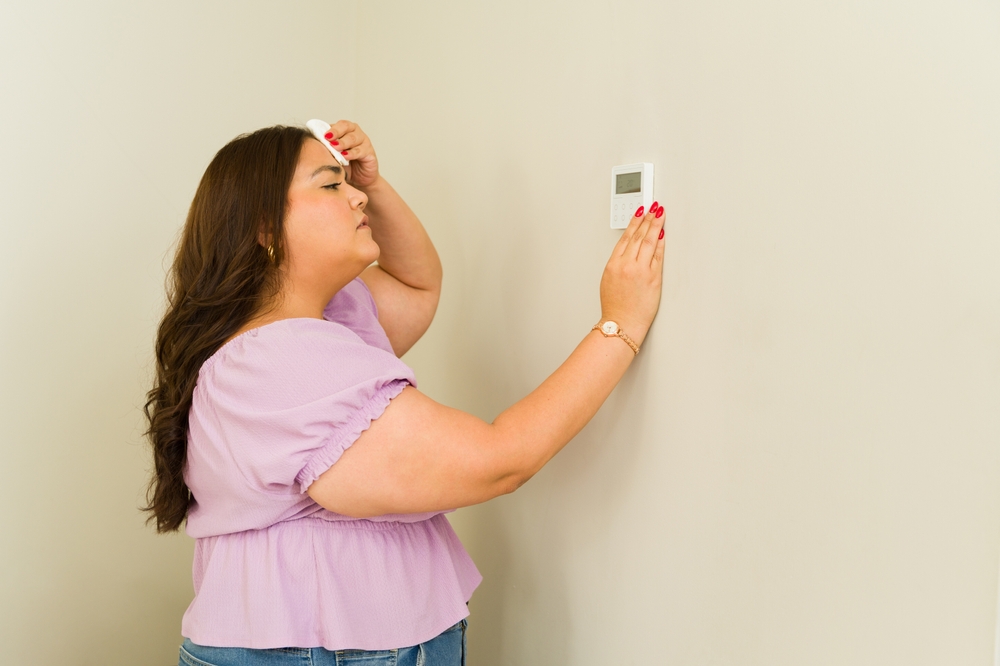
An HVAC system maintained for seasonal changes is key to preserving comfort. Not only that, keeping your HVAC in good condition helps keep the system efficient while minimizing the likelihood of breakdowns.
Below, discuss why homeowners should prepare for each season and why staying proactive can save money in the long run.
Spring & Summer Refresh: Preparing for the Heat
As temperatures rise, HVAC systems will work harder to keep homes cool. Taking these precautionary steps can prevent malfunctions and maximize efficiency:
- Replace Air Filters: Replace air filters every 1-3 months. A clogged filter restricts airflow and forces your system to work harder.
- Clean the Outdoor Unit: Leaves, dirt, and debris reduce system efficiency as they accumulate around the condenser unit. Have the surrounding area cleaned, making sure to maintain at least two feet of clearance.
- Check the Thermostat: Make sure your thermostat is responding correctly and programmed efficiently to avoid unnecessary energy consumption.
- Inspect for Cooling Issues: Weak airflow or uneven cooling could indicate refrigerant leaks or duct issues. Seeing these signs may necessitate a professional inspection.
- Schedule a Tune-Up: Let an HVAC technician inspect your system. They will check refrigerant levels, clean the coils, and inspect for potential issues before they escalate.
Fall & Winter Prep: Getting Ready for the Cold
Your heating system becomes an invaluable ally when the temperature drops. Preparing ahead of time prevents unexpected breakdowns during the coldest months. Be sure to:
- Replace Air Filters Again: Clean filters are also essential for maintaining good airflow and efficiency in autumn.
- Check Thermostat Settings: Keep your thermostat switched to heating mode to maintain consistent temperatures.
- Inspect the Furnace or Boiler: Pay close attention to rust, soot buildup, or strange noises. These are signs of wear and tear and should be rectified by experts.
- Seal Any Duct Leaks: Leaky ducts are money sinks that waste energy. Experts can identify leaks and properly seal them.
- Control Carbon Monoxide: Test carbon monoxide detectors to make sure they’re working correctly, especially if you use gas heating.
Year-Round Vigilance: Signs Your HVAC Needs Attention
Regardless of the season, homeowners should stay alert to potential HVAC issues. Here are some warning signs that may indicate a problem:
- Unusual Noises: Banging, rattling, or grinding sounds can signal mechanical issues.
- Strange Smells: Musty odors suggest mold growth, while burning smells may indicate an electrical issue.
- Inconsistent Temperatures: Your system may be due for a recalibration if some rooms feel hotter or colder than others.
- Rising Energy Bills: A sudden spike in energy costs can signal inefficiency or malfunctioning components.
DIY vs. Professional Maintenance: What Homeowners Can Handle
While homeowners can handle many routine maintenance tasks, some jobs require a professional touch from HVAC services in Cleveland, OH:
DIY Tasks:
- Cleaning around the outdoor unit
- Inspecting vents for obstructions
Professional Maintenance Tasks:
- Deep cleaning evaporator and condenser coils
- Checking refrigerant levels and detecting leaks
- Inspecting and sealing ductwork
- Testing electrical connections and gas lines
Energy-Saving Tips: How to Reduce HVAC Costs
Keeping your home comfortable doesn’t have to end in skyrocketing energy bills. Implement the following to save some dollars:
- Upgrade to a Smart Thermostat: Programmable thermostats help reduce waste as they are designed to optimize heating and cooling schedules.
- Improve Home Insulation: Proper insulation keeps heat in during winter and out during summer.
- Use Ceiling Fans: Fans help circulate air, allowing you to set your thermostat a few degrees higher in summer and lower in winter.
- Schedule Annual Inspections: Routine professional checkups keep your system running at peak efficiency.
Troubleshooting Common HVAC Issues
If your system is working poorly, these quick troubleshooting tips can help:
- No Airflow? — Inspect air filters. They may be clogged or the circuit breaker has tripped.
- Weak Cooling? — Inspect vents for blockages, making sure the thermostat is set correctly.
- Unusual Noises? — Turn off the system and call an HVAC professional to prevent further damage.
Choosing the Right HVAC System for Your Home
Consider the following if you are in the market for a brand-new HVAC system:
- Energy Efficiency Ratings: Prioritize buying ENERGY STAR-certified models to save on electricity.
- Size Matters: Pay attention to sizing. An improperly sized unit won’t heat or cool effectively.
- Warranty and Maintenance Plans: Choose a system with solid warranty coverage and service options.
How to Find a Reliable HVAC Professional
Keep these points in mind when hiring a technician:
- Check Credentials: Ensure the company is licensed, bonded, and insured.
- Read Reviews: Look for customer feedback on platforms like Google and Yelp.
- Ask About Experience: Choose a professional with expertise in your specific HVAC system type.
- Request a Written Estimate: Avoid surprises by getting a detailed cost breakdown upfront.
The Risks of Ignoring Seasonal HVAC Maintenance
Skipping seasonal HVAC maintenance is a gamble that can lead to:
- Unexpected Breakdowns: A neglected system is more likely to fail.
- Higher Energy Bills: Dirty filters and inefficient components lead to wasted energy.
- Shortened Lifespan: Regular tune-ups extend the life of your HVAC system.
- Poor Indoor Air Quality: Dust, mold, and allergens can accumulate in an unmaintained system.
Proactive HVAC maintenance keeps your home comfortable, lowers energy costs, and prevents costly repairs. By following the outlined tips, you can keep your HVAC system in top shape regardless of season.




